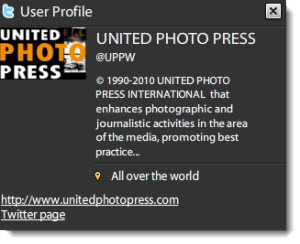Irony: This post from about a year ago explains why you can’t sell an idea to a large company, and recommends not even trying. And dozens of reader comments ask how to do exactly what the post itself says they shouldn’t even try. And I get more comments all the time, plus emails on my ask me form, asking how to sell the idea to the big company.

So I give up: Please promise me you’ve read this post before you go on. Know what you’re up against. Don’t be naive. Selling an idea to a big company is a one-in-a-million shot. You are probably wasting your time. But if you insist, here are my suggestions.
Step 1: Develop idea ownership
- Drill down on whether or not your idea is patentable. Patents are for inventions, not ideas. You either consult an attorney or do the research yourself. It’s a tough subject because it’s not what you think it should be, it’s what the real world and the beaurocrats do. And having a patent isn’t enough; it has to be a good patent, that protects against work-arounds, and will hold up in court. And a patent is something you can own. And sell or license.
- If you can phrase your idea as a creative work then you can protect it with copyright. That’s for books, songs, recorded performances, software products, films, television shows, paintings, and so forth. That’s protection, and ownership, but it doesn’t mean you can prevent people from copying you. If it’s good, they will.
- The other way to own an idea is to build a company over it. We call this general are one of trade secrets. It’s like the classic secret sauce. You bottle it, sell it, and hope imitators can’t reproduce it. So you can approach that target big company as a business already selling something, instead of just an individual with an idea to sell. Yes, that takes work; but your odds of success are much better.
- It won’t hurt to periodically write your idea down on paper, describe it as best you can, and mail it to yourself by certified mail. Do that whenever the idea changes. If you do, then at some future date, if you’re in a dispute, you can open that registered and sealed mail in front of a judge to prove what your idea was when. But don’t trust this protection very much: having an idea first doesn’t mean you own it.
Step 2: Get an attorney you trust
You need an attorney. (Note: I’m not an attorney; I can’t give you legal advice; I’m sharing my non-attorney experience as a business owner). Although non-disclosure (NDA) and confidentiality agreements are slim protection against big companies, it’s still better to have them than not to have the protection they offer. And an attorney you trust.
Step 3: Approaching the big company
I have to admit, I can’t tell you how to do this; I’ve never heard of anybody doing it successfully.
In theory, companies have some system for managing these contacts. Visit their website, call their main phone lines, investigate and explore. I do know that companies vary widely in how they deal with suggestions. Some have web forms. Some have employees. Some have a wall that’s hard to penetrate. And maybe there’s some that sift through ideas with interest and respect.
Often, finding the right person to talk to within a big company is like a reverse telephone tree. You start calling phone numbers available. With each call you make, you ask who’s the right person to talk to. With each new person who puts you off, you ask for another suggestion.
Step 4: The great beyond
If you find yourself actually dealing with that big company, pitching your idea, wow, I’m impressed; and you’ve already done the impossible. I hope you have a good attorney. I hope you succeed. My advice is be extremely skeptical and extremely cautious.


You must be logged in to post a comment.